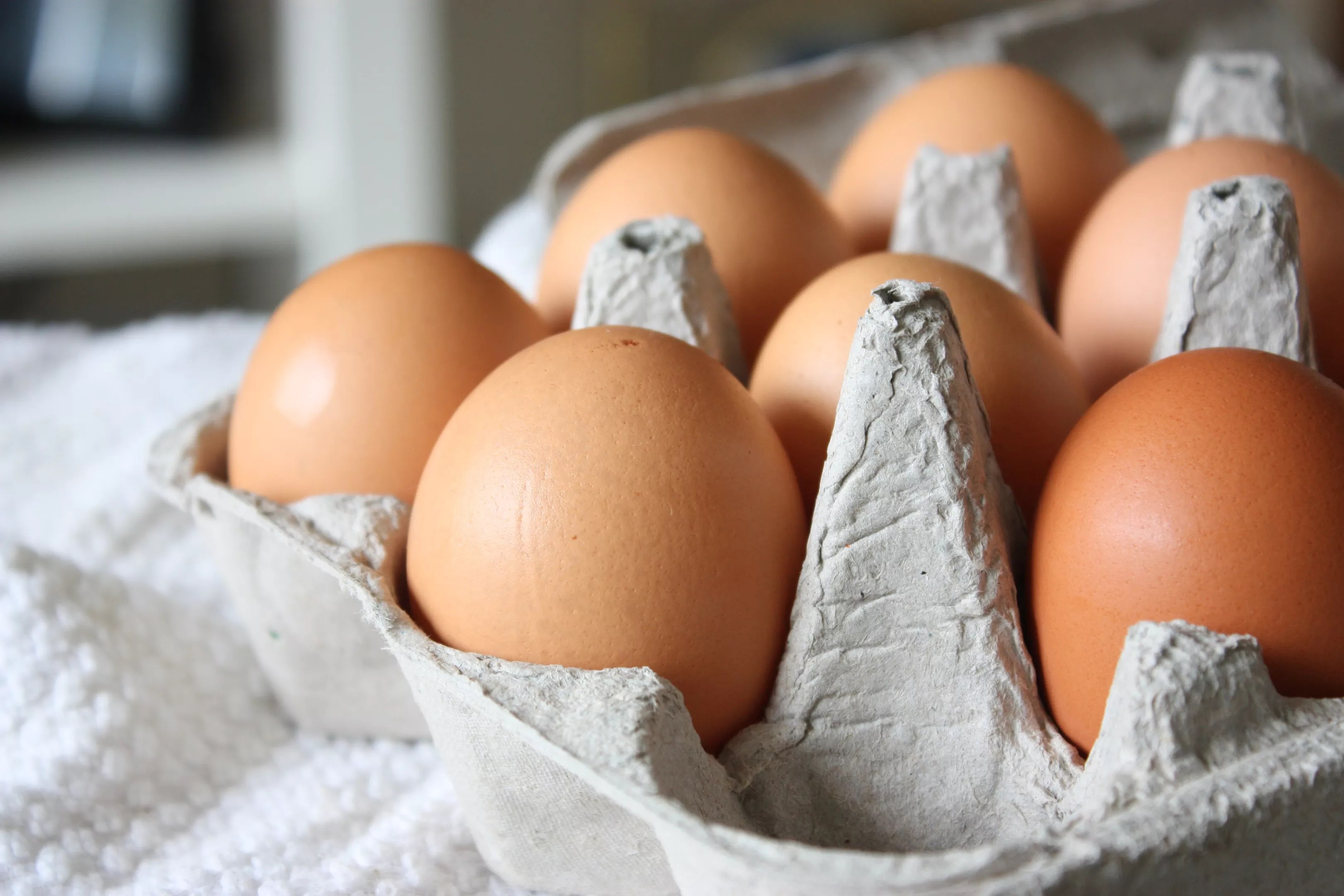
Morgane Perraud/Unsplash

Audio By Carbonatix
Hens are about to get a little more breathing room. On January 1, 2023, the first phase of HB20-1343, a bill titled “Egg-laying Hen Confinement Standards,” will go into effect, requiring producers of all eggs sold in Colorado to provide at least one square foot per hen. The second phase of the bill will expand that required space to either one square foot per hen with unlimited vertical access, or one and a half square feet per hen in order to qualify eggs as “cage-free.” Producers will phase into fully cage-free by 2025.
The bill began back in 2019, when Colorado Representative (now Senator-elect) Dylan Roberts and Senator Kerry Donovan, who both sat on agriculture committees, heard rumors of an impending cage-free egg ballot initiative. “[This bill] came from the industry wanting to work out laws [codifying] what was largely already in practice for them as folks who work with hens,” Donovan explains. “[We wanted to] head off a ballot initiative that didn’t come from the agriculture community.” The play was successful, with a handshake agreement of the would-be sponsors of the ballot initiative killing it.
Egg producers, represented by the membership organization Colorado Egg Producers, were involved in the process from the very beginning. They could read the writing on the wall; for years, there’s been a national trend to move toward cage-free eggs. Whole Foods has sold only cage-free eggs since 2005. Starting in 2016, almost all major U.S. supermarket chains, including Kroger, Safeway, Costco, Walmart, Trader Joe’s and Publix, committed to going cage-free in the next decade.
In 2021, Yum Brands, the parent company of Taco Bell, KFC and Pizza Hut, pledged to use only cage-free eggs by 2030. In September 2021, Amazon Fresh announced that its entire selection of eggs in the United States are cage-free. “[Our producers] knew it was a trend,” says Bill Scebbi, director of Colorado Egg Producers. “If our legislators, if our consumers want eggs like that, our producers will accommodate. We worked with the legislators on how to do it best. That’s why we advocated for phases.”
Governor Jared Polis signed the bill into law in July 2020, with the first enactment date scheduled for 2023. Even with a two-and-a-half-year gap, Mark Gallegos and his team couldn’t rest. Gallegos is director of the Colorado Department of Agriculture’s (CDA) Inspection and Consumer Services Division, so it’s his team that needs to draw up plans and implement enforcement for this wide-reaching regulation.
The Division started outreach with industry groups, hosting town halls and working at the state and national egg association levels to reach consensus. It landed on leaning on third-party auditors to carry out the bulk of the enforcement work; egg producers are responsible for hiring CDA-approved auditors to visit the site and ensure compliance with the space requirements for the hens. That way, when the egg producer submits an application to Gallegos’s team, it should include the independent audit documentation, allowing for an easier approval process.
Eventually, Gallegos hopes to set up an online database where both the public and the industry can review certificates of compliance documentation, but right now, he can’t think about the future. With less than ten days to go until the January 1 deadline, his team is racing to get through all the applications. “Over a thousand farms across the nation have applied to be approved,” Gallegos says. “They’re coming in daily right now.”
It’s an improvement for the hens, but what about for the consumer? Scebbi points out that this bill is only one of the factors behind an increase in the cost of eggs. “[Egg producers are] facing the same things that have increased cost for all other commodities – feed cost, transportation costs, housing costs; those costs have all gone up,” Scebbi says. “And now we’ll need to restructure our farms on top of that.”
That statement is contrary to the CDA’s press release about the bill, which says, “Already, 100 percent of Colorado commercial egg farms, as well as several out of state farms, are already certified compliant by Colorado.” Theoretically, this should mean that there would be no increased cost for egg producers to become compliant. “I’m really disappointed that [the egg industry] is out there saying that [in the media],” Donovan says. “When we were writing the law, [the egg producers] promised us that this does not increase the cost of the eggs.”
Scebbi says Donovan is missing the nuances. “I believe all of our farms [before this bill] had only one or two cage-free barns. So some eggs were produced in barns that had cage-free environments, some had conventional environments,” Scebbi explains. “[To go entirely cage-free] requires a conversion in the production of eggs on a commercial basis. All the equipment and housing need to be replaced. Cage-free eggs are more labor intensive to produce. … Eggs will cost more.”
A more daunting factor behind more expensive eggs is the recent impact of the avian flu. In Colorado, Scebbi estimates the influenza wiped out 85 percent, or 5.1 million, hens. Colorado egg producers not only had to replace their stock and disinfect their farms, but also source eggs from around the country to serve Colorado’s demand, an option that will become harder as the passage of this bill narrows the pool of Colorado-eligible egg producers.
However, there’s one thing both sides can agree on. “The quality of eggs is very high. The supply is here. We’re working hard to make sure Coloradans have eggs on their shelf…through the hard work of the egg producers and the Department of Agriculture,” Scebbi notes.
“Colorado egg producers have been great stewards and responsible producers,” Gallegos agrees. “[This bill] highlights our really, really great egg producers that care about their flock and their animals.”